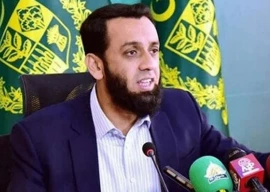
The statement was issued from the NSC forum after a meeting chaired by Prime Minister Shahid Khaqan Abbasi, just days after Pakistan Army Lieutenant Arsalan Satti embraced martyrdom during a cross-border attack from Afghanistan’s side at Rajgal Valley. Recently, repeated instances of ceasefire violations by Indian forces at the Line of Control (LoC) have caused harm to civilian life and property.
Abbasi wins plaudits for ‘bold stance’ at UN
The foreign and finance ministers, chairman of the Joint Chiefs of Staff Committee (CJCSC), all three services’ chiefs, and senior civil and military officials attended the huddle.
State-run media had billed the meeting as being a review of “internal and external security issues and meetings of the prime minister and foreign minister with the US leadership”.
However, a press release issued by the PM Office lacked any specific mention of ties with the US or even the name of the country.
“Pakistan’s continued engagement with leading world powers on matters of regional security generated supportive sentiment for Pakistan among world leaders during interactions on the sidelines of the United Nations General Assembly in New York,” the committee was informed, according to the statement.
Speaking to The Express Tribune, foreign and strategic affairs analyst Dr Hassan Askari Rizvi said the US was not named in the press release due to the gravity of the situation triggered by ongoing tension between both sides.
NSC vows to keep robust defence posture
“There is a strain in the relationship which both sides seem not to be in a hurry to mend. There is a go-slow policy being followed by Islamabad and Washington,” he said, referring to deteriorating Pak-US ties since President Donald Trump announced his Afghanistan policy.
US Secretary of State Rex Tillerson recently visited China, and US Secretary of Defence Jim Mattis visited Afghanistan and India, while Pakistan has been ignored, Rizvi added.
“The outcome of these three visits will define Washington’s future policy towards Islamabad. Till date, Americans are weighing their options and they haven’t finalised any definite strategy yet.”
The analyst said there are some major points of divergence between the US and Pakistan’s approach towards Afghanistan that would continue to influence the future relationship. “Things are going to be tough on us. Our PM and foreign minister said there is no military solution in Afghanistan. The US, on the other hand, is increasing its troop presence in the war-torn country. This is going to be problematic.”
The PM Office said the NSC also reviewed ongoing developments in Afghanistan as well as “common avenues for continued cooperation, especially border management and repatriation of refugees. The committee reiterated its commitment to peace in Afghanistan through an Afghan-led and Afghan-owned peace process.”
India admits ceasefire violations under 'Operation Arjun'
It said the forum was briefed that the PM and foreign minister had engaged the leadership of “several important countries to share Pakistan’s perspective on regional and global security challenges.”
The committee was also informed that the foreign minister had visited key regional countries, including China, Iran and Turkey to apprise their leadership of Pakistan’s perspective on crucial regional and international issues.
On the Line of Control (LoC) situation, the panel expressed deep concern over repeated violations by India, resulting in loss of innocent lives owing to shelling and firing across the LoC. The committee also condemned violations of human rights in the Indian Occupied Kashmir (IOK) and the use of excessive force against unarmed civilians.
“The committee was informed that the prime minister, in his meeting with the UN secretary-general, had handed over a dossier documenting systematic human rights violations by India in Indian Occupied Jammu and Kashmir and stressed the need for appointing a Special Envoy on Jammu and Kashmir.”

1725030039-0/Untitled-design-(2)1725030039-0-165x106.webp)
1725366721-0/kyle-(1)1725366721-0-165x106.webp)
1731410017-0/BeFunky-collage-(45)1731410017-0-165x106.webp)


1732696613-0/BeFunk_§_]__-(59)1732696613-0.jpg)
1732622842-0/Express-Tribune-(9)1732622842-0-270x192.webp)


1732701958-0/BeFunk_§_]__-(61)1732701958-0.jpg)






COMMENTS
Comments are moderated and generally will be posted if they are on-topic and not abusive.
For more information, please see our Comments FAQ